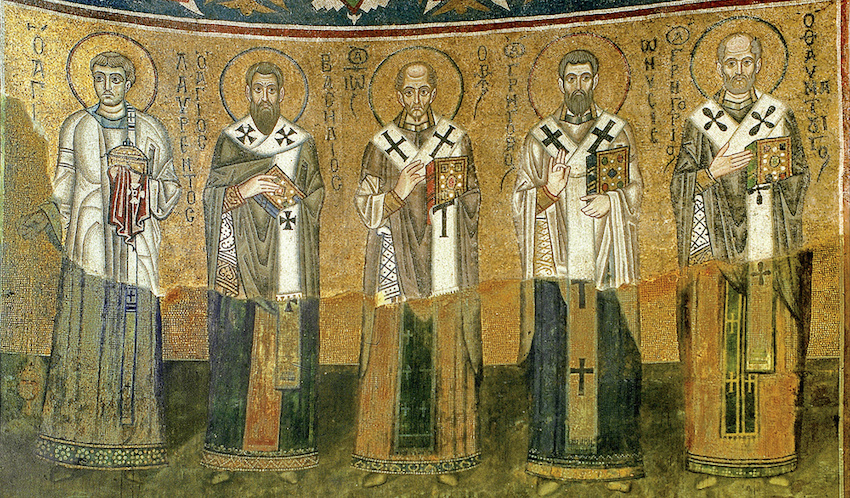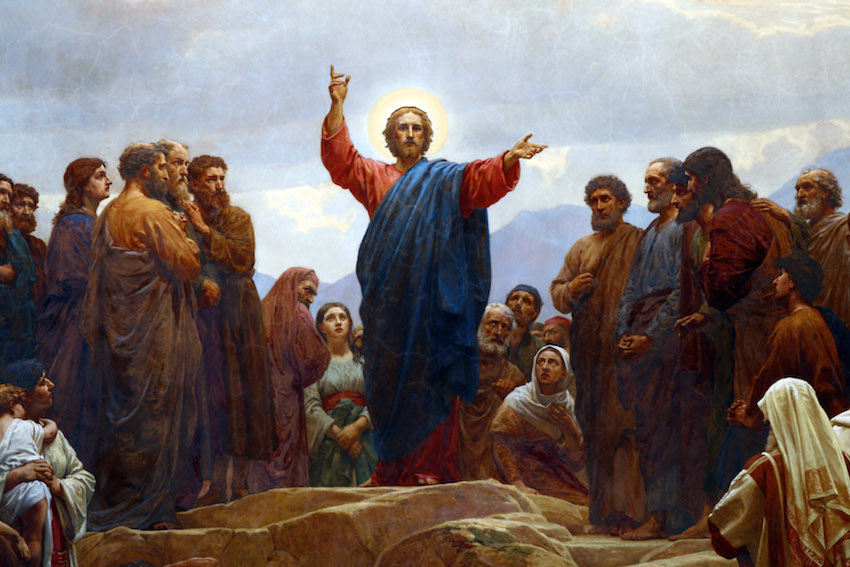
This week we continue our reflection on repentance which is the door and the path to salvation. In our modern day, especially in North America, we have a mindset of action, achievement and progress. Too often this spills over into our spiritual life. We believe if we are doing more good than bad, fast some, pray, follow the rules we are progressing upon the path of salvation. A sick and dying man cannot cure himself. Like the Publican and Pharisee, we need a “soul” doctor. We need to acknowledge our sickness and be healed by Christ, the Divine Physician.
We may fool ourselves into a false sense of spiritual progress. Too often, we compare ourselves to others and pat ourselves on the back and believe we are better than those terrible sinners, murderers, rapists, robbers and terrorists. But the reality is, we are all broken and fall far short. How blind we are to compare ourselves to mere human beings when our standard is Christ, the all Holy, Perfect and Pure!
Jesus’ first instruction in the Gospel is “Repent.” Mt 4:17 The word in Greek is metenoia, which means a transformation of the mind, not emotions. From then on, it’s His unceasing message, “Repent!”, not just scribes and Pharisees or the powerful, but even to the poor and oppressed. “Do not be conformed to this world, but continuously be transformed by the renewing of your minds so that you may be able to determine what God’s will is—what is proper, pleasing, and perfect.” Romans 12:2
At our Holy Baptism and Chrismation, we receive the pure gift, new life in union with the Trinity. As we now live in relationship with the community of the Trinity and the community of persons on earth, how we act impacts those in heaven and on earth. We are called to be alive in Christ, to be aware and conscious of our action and inaction, our sins voluntary, and involuntary. Independence is an illusion!
When we sin, we are incapable of healing ourselves or amending our ways through sheer will power. How often do we return to confession only to confess the same sins over and over? We may even lament that we are making no progress at all in conquering our persistent temptations and sins. We may never “arrive”, but should this be surprising? We are weak and fallen, but beloved of God.
True repentance does not primarily focus on progress towards doing good, but continuously turning to Christ and throwing ourselves upon His boundless mercy. We should struggle not to sin, but when we fail down, get up, dust yourself off, and try again. “Everyday I fall down, I get up,” as the little monk said. “Continue to fight the good fight.”
Even as we become aware of our brokenness, we must not let ourselves slip into despair. We must learn to be truly honest about our failings without giving up the fight. Isaiah, a fifth-century Egyptian monk, warned against the kind of sadness that “sets off numerous diabolical mechanisms until your strength is sapped. The sadness according to God, on the other hand, is joy … It says to the soul, ‘Do not be afraid! Up! Return!’ God knows that man is weak, and strengthens him.” “Jesus, I trust in you!”
Other traps we can fall into: First, victimhood: turning our feelings of remorse outward and blaming others for your failings or why things have not gone your way and thus why you fell. Secondly: “I’m nice” which modern culture is especially keen to focus on. In reality though, aren’t we often ungrateful, cruel and selfish in so many ways? This is just another form of comparing yourself to others as the Pharisee was so apt to exclaim.
No matter how many people you dredge up as examples of greater sinners, the cold, hard reality is we are all in just as desperate need of healing as the next person, no matter how terrible anyone of us may have behaved. We must recognize, in humility, we are no better than anyone else, and are incapable of reform without Christ.
Once we get that perspective adjusted, repentance can come very swiftly. And once we really decide that it is God himself we want to approach, repentance comes to feel like a clarifying, tough-minded friend. The first step in our healing, then, is not being comforted. It is taking a hard look at the cleansing that needs to be done.
This is not condemnation, but right diagnosis. It is not judgmentalism, because the judgment is evenly applied: All are sinners, all have fallen short. It is not false guilt, because a lot of the guilt we feel is in fact deserved; we are guilty. Forgiveness of past sins doesn’t cure the sickness in the heart that continues to yearn after more. We will remain sick until that healing begins, and it will be a lifelong process.
Repentance enlarges the heart until it encompasses all earthly life, and the sorrow tendered to God is no longer for ourselves alone. Knowing our own sin, we pray in solidarity with all other sinners, even those who hurt us. With all creation we groan, crying out to God for his healing and mercy. He who does not desire the death of a sinner, but that he turn from his evil and live, puts his Spirit within us, and we too no longer desire any vengeance. Then our ability to love others, even our enemies, broadens like sunlight on the horizon.
From the Saints and Others
“While we are living improperly, we fear all kinds of things. When we recognized God, there occurs a fear of His judgment. But when we start to love god, all fears vanish.” – St. Isaac the Syrian
“Do not be ashamed to enter again into the Church. Be ashamed when you sin. Do not be ashamed when you repent. Pay attention to what the devil did to you. These are two things: sin and repentance. Sin is a wound; repentance is a medicine. Just as there are for the body wounds and medicines, so for the soul are sins and repentance. However, sin has the shame and repentance possesses the courage.” – St. John Chrysostom
“Do not be surprised that you fall every day; do not give up, but stand your ground courageously. And assuredly, the angel who guards you will honor your patience.” – St. John Climacus – The Ladder of Divine Ascent
“True repentance is to turn toward God, to acknowledge our failures and brokenness, and in humility reform our viewpoint from how the world sees things, to those things of God. He desires to work with us and through us to save us.”
On Disputes
How can we reform our perspective and truly begin the life of repentance? Pani Frederica Mathewes-Green has created a helpful guide, a “Daily Repentance Workout… so as we gradually gain more insight into ourselves, we are able, with God’s grace, to find ways to resist habitual sin and grow in self-control. We gain strength bit by bit, like an athlete striving for the prize, as Paul said. Gradually we reclaim more and more of ourselves and offer it to God’s transforming light. Thus the Holy Spirit works within us, sanctifying us from the inside out.
Fasting – People are beset by all different temptations, but everybody eats. Restricting foods‚—not necessarily a total fast, but simply declining favorites for a time—can be a way of strengthening the “willpower muscle” to be ready when needed to handle a bigger temptation. Turn down a doughnut today, and tomorrow you might be able to resist calling the driver in front of you an idiot.
Bite your tongue – Yes, not calling someone an idiot is a frequent theme in Scripture and early Christian writings. Both place great emphasis on controlling anger, perhaps as much as on sexual continence. Jesus said the penalty for calling your brother a fool was “the hell of fire.”
Mind your thoughts – Jesus said that to commit adultery in the imagination is the equivalent of committing it in fact. Nearly all sins begin with thinking about sin. Control the thoughts and you have a good head start on behavior. Paul counsels that we think about things that are true, lovely, gracious, excellent, and praiseworthy, so you might want to read some Dickens tonight instead of watching that sleazy sitcom.
Practice humility – Humility is not the same as resisting the urge to show off (which is modesty) or denying that you have gifts and talents (which is lying). Humility is remembering that you have a beam in your eye. In every situation remember what God knows about you, and how much you have been forgiven. Overlook insults and be kind to those who misuse you. Be swift to admit when you’re wrong.
Pray constantly – Try always to recall that God is with you, dwelling in you. (This helps a great deal in controlling thoughts.) For more than 1,500 years, some Christians have tried to do this by forming the habit of praying, “Lord Jesus Christ, Son of God, have mercy on me” all the time, a kind of background music to other thoughts. Ask God to help you repent. We really don’t want to do this, and we find a million excuses to change the subject. Read stories about repentant sinners, like John Newton, the slave dealer who wrote “Amazing Grace,” or the once promiscuous Mary of Egypt. Those are reasonable models for you, not an ivory-tower saint. Keep thinking of yourself as the Prodigal Son. Think over your deeds and conversations each evening and look for areas to improve. Read Psalm 51 before bed every night. Someday you may actually believe it.”
 Today’s song is the title track from the superb debut album from John Waller, “The Blessing”. If you listen carefully, you might be able to identify the other well-known Christian singer joining him on this song…
Today’s song is the title track from the superb debut album from John Waller, “The Blessing”. If you listen carefully, you might be able to identify the other well-known Christian singer joining him on this song…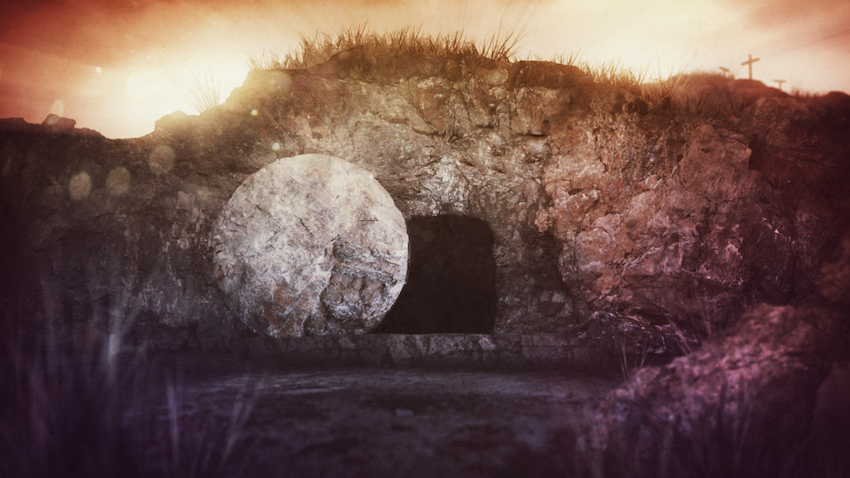
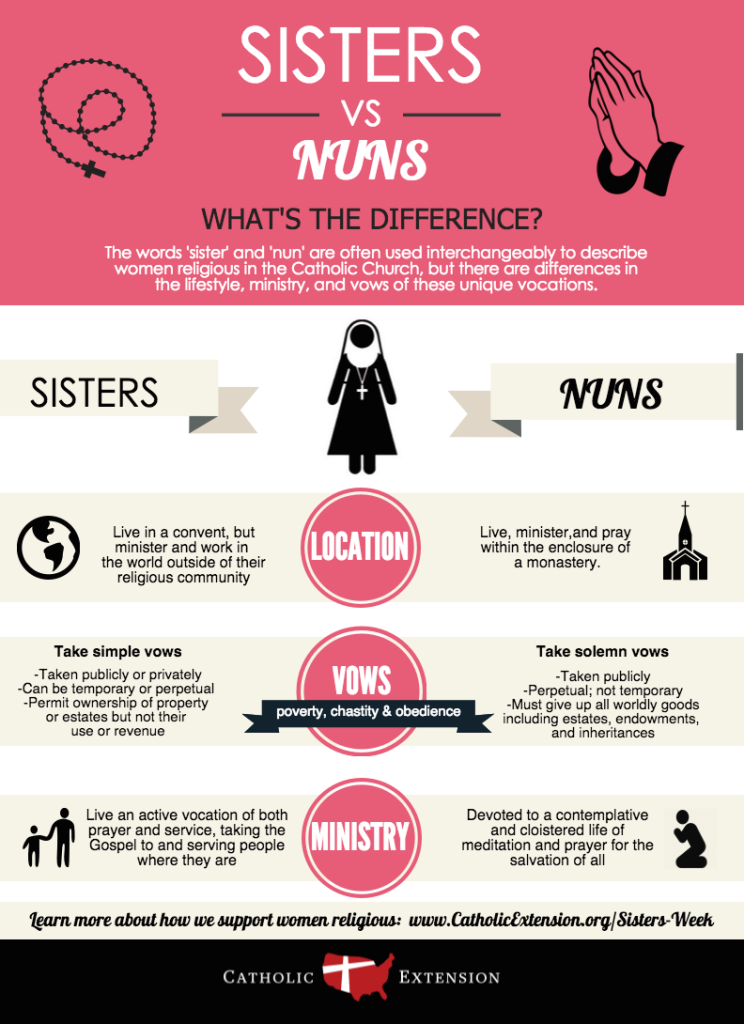

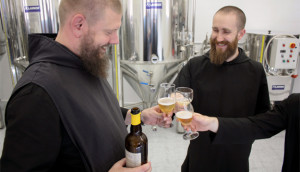 It is common knowledge that monks and nuns have a long history of manufacturing many different kinds of products. Production has traditionally been restricted to fairly standard items such as jams, sweets, beers, wine, and even some medicinal goods. Some monasteries are particularly famous for the quality of their products. For example, Trappist monk beer is considered by many to be some of the best brew in the world.
It is common knowledge that monks and nuns have a long history of manufacturing many different kinds of products. Production has traditionally been restricted to fairly standard items such as jams, sweets, beers, wine, and even some medicinal goods. Some monasteries are particularly famous for the quality of their products. For example, Trappist monk beer is considered by many to be some of the best brew in the world.
